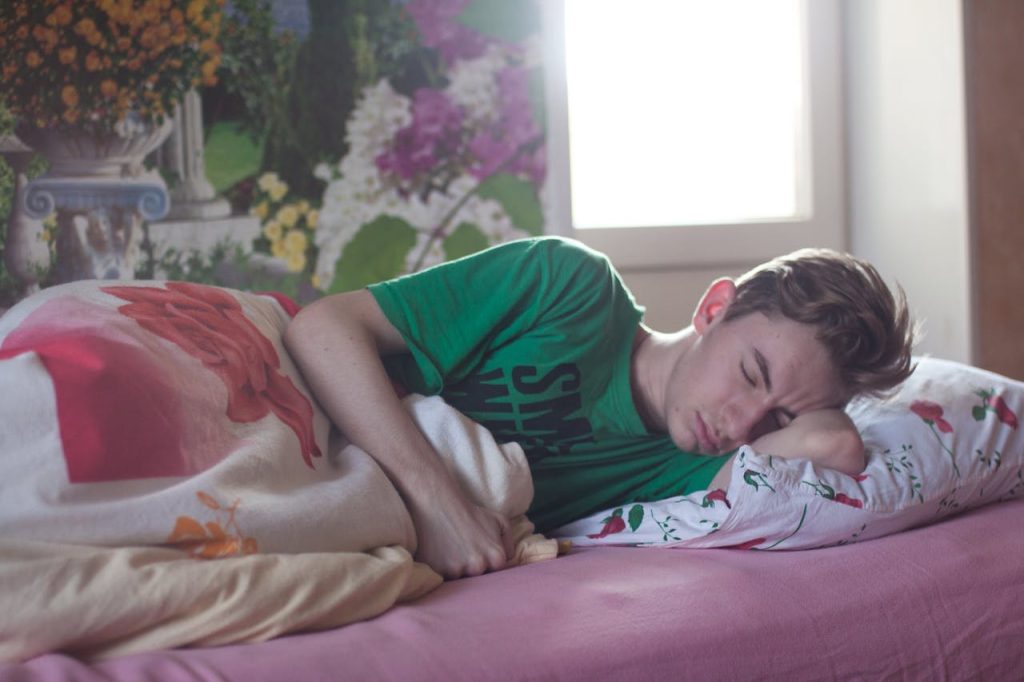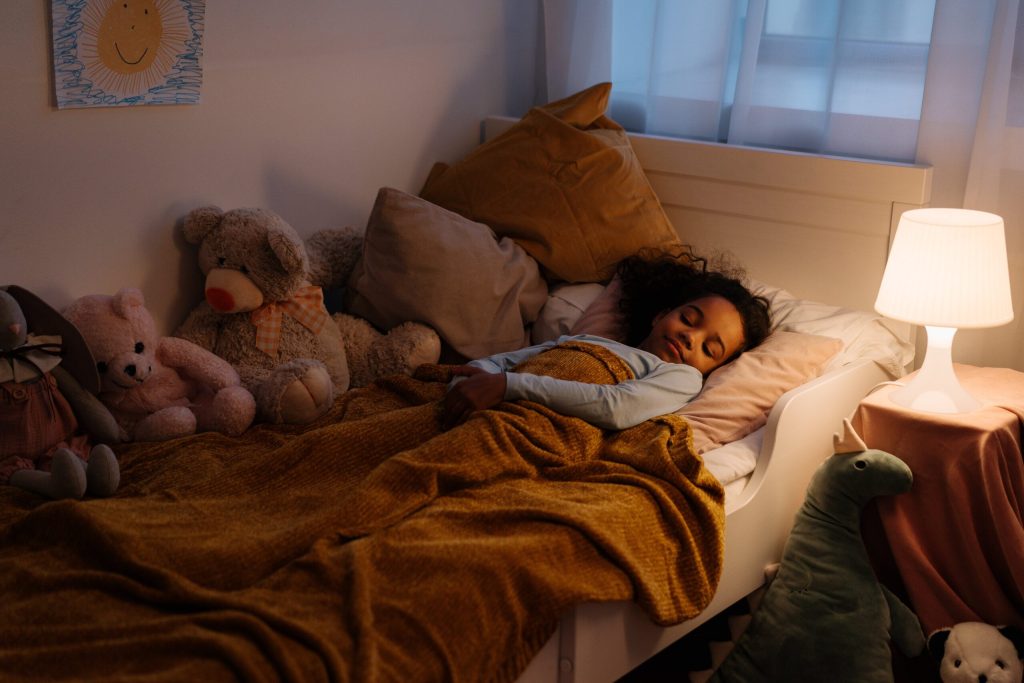A study found that although getting enough sleep is linked to improved mental health, it has no effect on a person’s methods for reducing stress. Picture courtesy of Stocksy/Studio Firma.
Anxiety and depression are two mental diseases that may become more common with prolonged stress.
According to the findings of a recent study, sleep and adaptive emotion regulation techniques significantly lower the risk of anxiety and depression in people who endure high levels of continuous stress.
This study made use of the COVID-19 pandemic, which caused a large deal of ongoing stress in people. Regardless of the cause, chronic stress management is essential.
A significant number of individuals experienced prolonged stress due to the distinct circumstances resulting from the COVID-19 epidemic. Scholars are endeavouring to ascertain the elements that contribute to enhancements in psychological well-being and the ways in which these extended, ongoing pressures impact psychological disorders.
An investigation on the relationships between adaptive emotion regulation techniques, or positive coping strategies, and rates of anxiety, depression, and restless nights was published in the journal Cortex.
According to the authors’ research, both elements can help lower rates of anxiety and depression. Contrary to their original hypothesis, they discovered that the efficiency of emotion management techniques was unaffected by the quality of sleep.
What part does the quality of sleep play?

This study was a secondary analysis of sleep and mental health data that was gathered from spring to fall of 2020, during the COVID-19 pandemic.
Finding out if adaptive emotion management techniques are linked to improved mental health was the study’s primary goal.
Long-term cognitive processes that have the potential to enhance mental health are adaptive cognitive emotion management techniques. One example is the technique known as “positive reappraisal,” which is the act of focusing on the positive elements of a circumstance or event.
Second, they investigated if the quality of sleep affected the effectiveness of adaptive emotion management techniques. They examined these parameters in light of “the COVID-19 pandemic, a naturally-occurring and chronic stressor.”
Co-author Emma Sullivan provided Medical News Today with an overview of the main objectives of the study:
During the COVID-19 pandemic, our first line of enquiry was whether a higher frequency of constructive coping methods would be linked to a decrease in anxiety and depressive symptoms. Second, we looked into whether having peaceful sleep was a prerequisite for reaping the rewards of learning healthy coping strategies to lessen symptoms of anxiety and depression. This is due to research showing a link between effective coping mechanisms and sound sleep patterns and symptoms of depression and anxiety.
Strategies for emotional intelligence are crucial.
There were 1,600 adult participants in the study. Through online questionnaires, the participants supplied vital demographic information. Additionally, they answered questionnaires on coping strategies, depression, and generalised anxiety.

Based on data analysis, the researchers discovered that lower assessments of anxiety and sadness were linked to a higher use of adaptive cognitive emotion management techniques.
They also discovered a connection between reports of better sleep and decreased rates of melancholy and anxiety.
They discovered that those who reported having better sleep also used more adaptable cognitive emotion control techniques. The association between adaptive cognitive emotion regulation techniques and sleep quality was the main focus of this investigation.
Adopting adaptive cognitive emotion regulation techniques did not significantly predict anxiety outcomes in their final model, which also included sleep quality.
Put another way, it seems that there is no connection between a person’s sleep quality and how well they are able to reduce emotions of melancholy and anxiety through the use of positive coping mechanisms. Independent of the quality of sleep, positive regulation strategies continue to provide benefits for mental health.
Sullivan elucidated to MNT the nuances of these findings:
In fact, we discovered that a higher frequency of using healthy coping strategies was linked to a decrease in feelings of hopelessness and anxiety. Additionally, less anxiety and depression were linked to higher-quality sleep. Nevertheless, contrary to our expectations, developing healthy coping mechanisms to lessen the symptoms of anxiety and sadness did not require getting lots of restful sleep.
The results are not as shocking as they first appear to be.
MNT received additional insight into the study’s findings from Dr. Lindsay Oberleitner, the director of education at SimplePractice and a licenced clinical psychologist. Her attention was not on the study.
She stated to us that, “interestingly, in their relationship to depression and anxiety, cognitive emotion regulation techniques and sleep quality didn’t work together as was expected.”
She did, however, point out that this might not be as shocking as it would initially appear.
This might not come as a huge surprise if we take a step back from the current investigation. It is well known that a wide range of intricate aspects affect each person’s feeling of hopelessness and anxiety. Mental health is influenced by sleep and other physical health variables, and emotion management techniques go beyond basic cognitive adaption.
Research constraints and further examination by Lindsay Oberleitner, M.D.
However, it is imperative to recognise the constraints of this research. Self-reporting by participants, which is frequently unreliable, was used by researchers.
They highlight the fact that measurements and reports of sleep quality usually don’t agree well. They were unable to assess any potential changes because they were only able to examine the adaptive cognitive emotion management strategy and sleep quality once throughout the trial.
Furthermore, the authors’ dataset contained more information on melancholy than on anxiety. There wasn’t enough power in the study to evaluate any minor possible interaction effects.
They were unable to examine the connection between the most effective cognitive emotion management technique—or combination of techniques—and sleep quality due to the limitations of the measurements they utilised.
The majority of the study’s subjects were American white girls with higher education levels. Numerous variables could not be taken into consideration because the data was gathered online. The aforementioned constraints constrain the study’s conclusions to a broad interpretation and underscore the necessity for more varied future investigations.
Finally, the study’s authors note that because the COVID-19 pandemic offered a distinct form of stress, it is challenging to generalise the study’s findings to other extended stresses and their ensuing effects on mental health.
Future studies, in Sullivan’s opinion, might examine different stressors.
“Replicating these findings in the face of other long-term stressful events would be good, as the COVID-19 pandemic was obviously a unique stressful situation,” she told MNT.
In addition, she continued, “it might be crucial to investigate in the future the relationships between particular mechanisms and symptoms of depression and anxiety as well as sleep quality, since we examined a variety of constructive coping mechanisms.” Two instances of this are perspective-taking, which calls for considering the bigger picture, and positive reappraisal, which is reevaluating the situation in a constructive manner.

